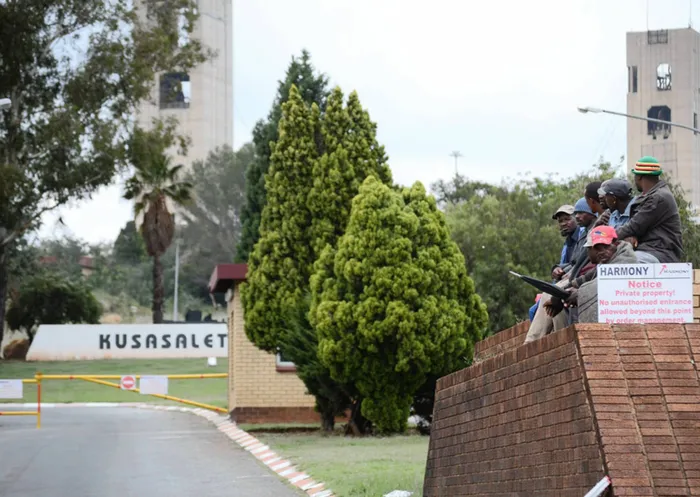Precious little room to negotiate

Four percent: This is what is being offered as an increase to miners in the gold sector. It is a far cry from the 100 percent increase demanded by the Association of Mineworkers and Construction Union and the 60 percent sought by the National Union of Mineworkers for underground workers. Picture: Motshwari Mofokeng Four percent: This is what is being offered as an increase to miners in the gold sector. It is a far cry from the 100 percent increase demanded by the Association of Mineworkers and Construction Union and the 60 percent sought by the National Union of Mineworkers for underground workers. Picture: Motshwari Mofokeng
Johannesburg - Frans Baleni is a soft-spoken man with his finger on the pulse of a fragile balancing act between securing higher wages for impatient mineworkers in the gold mining sector and ensuring stability of the industry to avoid job losses.
Baleni, the general secretary of the National Union of Mineworkers (NUM) is the union’s chief negotiator in talks with the Chamber of Mines, during which the union tabled demands for a 60 percent wage increase while the chamber offered only 4 percent this week.
It is a stressful job, he says, one that can fray your nerves.
Baleni is preparing to go into intense talks next week to convince mine bosses to accede to the workers’ demand of double-digit hikes and avoid confrontation that could lead to crippling strikes.
“As a negotiator you try to be reasonable and look at reality but you have this new emerging culture of people that don’t want to be led any more,” he says. “You cannot be objective where you say ‘I think there is a point to say we can settle’. It’s going to be tough.”
Pushed to the wall by rivals such as the Association of Mineworkers and Construction Union (Amcu), indebted workers and their refusal to budge on their wage demands, Baleni says NUM faces its toughest challenge yet in this year’s talks.
He recalls how he recently received a call from NUM members threatening to join Amcu after NUM had settled with an employer in wage negotiations in another sector.
Baleni says this is the result of an emerging culture of people promising workers something that they will not be able to achieve.
“It’s an abnormal period this,” he says. “It’s not as easy mobilising people to follow you. What really hurts me is that people are given the impression that nothing has been done in the past 30 years. We have done a lot of work in the past five years for instance if you look at the fact that we have had 3 percentage points above inflation increases with the exception of 2008.”
Trying to maintain his composure, Baleni explains that NUM’s problem going into these negotiations is the changing profile of members in the sector from mature older workers to younger ones who have grown “very impatient”.
He says remuneration in the mining industry has been bedeviled by a grading system that focuses on authority and ignores the risks of the job. He says mine bosses have repeatedly refused to look at alternative grading systems such as those used in countries like Canada.
“This negotiation round is the most difficult I have ever been involved in in the past 30 years,” he admits. “I can’t tell you how much I think the industry can afford to pay workers at the moment because that would not be proper going into the negotiations. When you go to the chamber it is not like you are going to the welfare department where you just go grab a grant.”
Baleni says given the high level of inequality in the mining sector and society in general, it would take 1 291 years for a general worker to earn what a mine chief executive earns in a year.
“It’s painful,” he adds. “You still have employers not doing what they were supposed to do, such as providing for the wellness of workers and accommodation. These problems bedevil the mining industry today.”
NUM’s wish is for the workers to be united in facing the employers and to speak with one voice even if it means lowering their expectations for the sake of stability, but the union fears its rivals will not budge on their demands.
Saturday Star